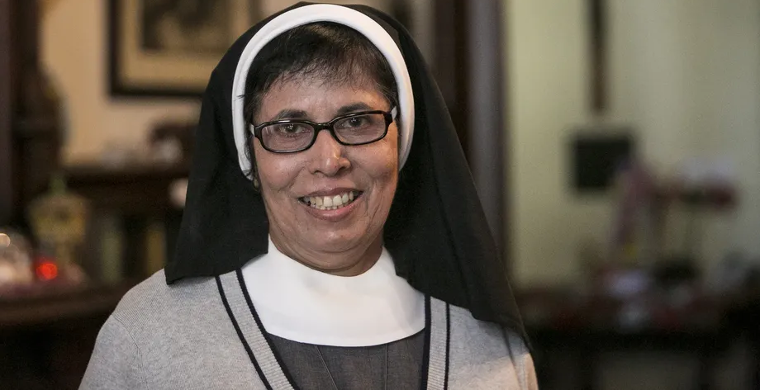CHICAGO: The last nun left at Near North Side Episcopal convent isn't leaving without a fight
Sister Judith Mandrath's Order of St. Anne has hired a lawyer who's fighting the Episcopal Church to allow her to remain at the convent on North LaSalle Drive.
By Stefano Esposito
https://chicago.suntimes.com/
February 25, 2022
The letter to Sister Judith Mandrath begins politely, saying she is in the writers' prayers.
Then, it gets to the point:
"We do not feel it is appropriate for you to remain on the property indefinitely in hopes of renewing the Order of St. Anne as a religious community or in any capacity ... . We can, however, provide you with a period of transition, if needed, subject to the terms of the occupancy agreement, through December 31, 2021."
Nearly two months past that deadline, Sister Mandrath has declined to take the offer. She hasn't left the 101-year-old Near North Side convent that is now down to one last nun.
But she has gotten a lawyer.
So is she refusing to leave?
Coming to the door of the convent in her charcoal-gray habit, all that Mandrath will say is this: "I'm still living here."
The future of the convent is now up to the courts.
Bank of America administers a charitable trust that funds the order that ran the convent and whose roots in Chicago go back 101 years. In August, the bank asked a Cook County judge to step in after getting a letter from the Episcopal Church, which oversees the convent, saying the church has withdrawn St. Anne's status as a religious order.
The order was founded on the East Coast in 1910. The convent in Chicago has eight bedrooms. No more than six nuns have ever lived there at a time, Mandrath told the Chicago Sun-Times in 2018. Four sisters live at the order's convent in Massachusetts.
Since 2009, only Mandrath, the mother superior, and Sister Babara Drell, have lived in the creaky, 3,600-square-foot brick mansion on North La Salle Drive.
They prayed that God would bring them another sister. A young woman from France arrived, saying she was interested in the religious life, but she didn't stay.
The sisters' predicament reflects a national withering of interest in convent life.
"We used to worry," Mandrath said in 2018. "But what is the point of worrying? It doesn't do any good. We are all going to die.
"God brought us together, and God is still keeping us together. We are still waiting, like Abraham for the promised land."
In 2020, Drell, who was 88, died. And that left just Mandrath.
The Episcopal Church says that, according to its rules, an order of one isn't an order at all.
Last May, the rectors and wardens of the neighboring Church of the Ascension sent Mandrath a letter, saying she could stay only until the end of 2021.
When she wouldn't agree to that, a lawyer for the church sent her a letter demanding "immediate possession" of the building.
The church has no immediate plans for it, according to spokeswoman for the Episcopal Diocese of Chicago.
"These regrettable concerns have bred a lot of anonymous emails and peculiar, misinformed speculation," says Patrick Raymond, the soon-to-be-retiring rector at the Church of the Ascension. "Sister Judith was at mass here yesterday, and afterward, I gather, returned next door. If she is 'about to be moved' I do not and would not know by whom or where."
Richard C. Baker, Mandrath's lawyer, says the Episcopal Church is wrong. Baker says the St. Anne order isn't extinct because, in addition to Mandrath, it has four sisters who live at the Massachusetts convent.
The church can take possession of the convent only if it's sold and after giving Mandrath "reasonable time to find another suitable dwelling house," Baker wrote the church's lawyer last Sept. 29.
Sister Ana Clara, mother superior of the Massachusetts convent, was on retreat in recent days and couldn't be reached.
Another sister there, who declined to give her name, says the nuns are praying for Sister Judith.
END














